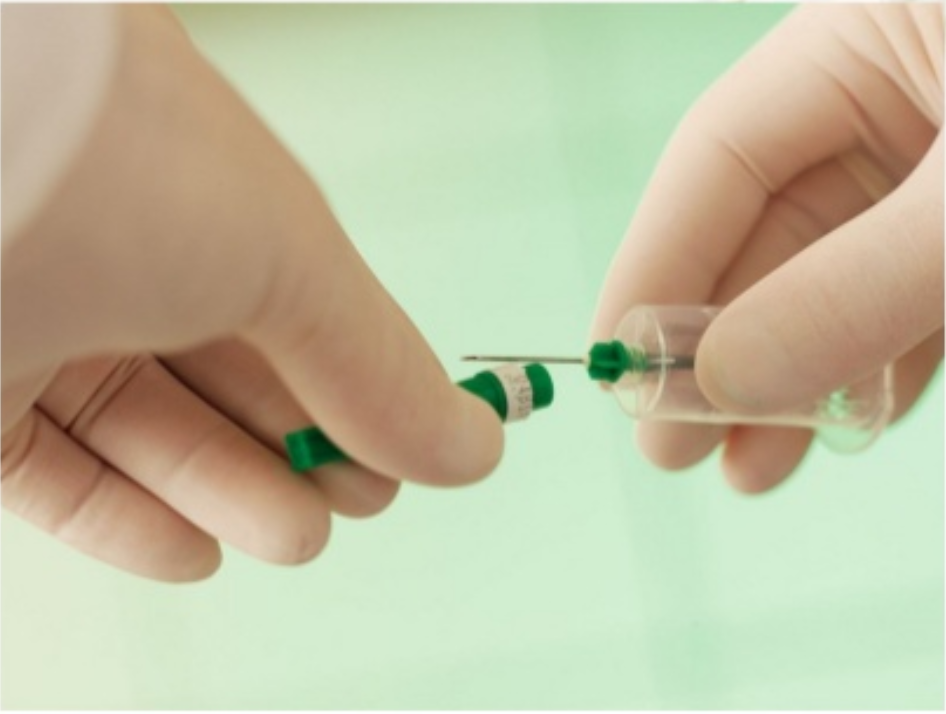
Recapping needles is extremely dangerous because it can result in accidental punctures of the fingers or hand, which can lead to potential exposure to hazardous chemicals, drugs, or infectious biological agents.
How is Recapping Dangerous?
- The individual handling the needle may miss the plastic cap or pierce the end of the cap, leading to a finger or hand puncture
- The cap may not be secure and could fall off, exposing the individual’s finger or hand to the needle
- An individual may be stuck when taking the needle apart from the syringe assembly
How To Protect Yourself
You can protect yourself by planning ahead for safe handling and disposal of needles without recapping. Standard needles should NOT be left out in work areas; they should be used and then immediately disposed of in approved sharps containers without recapping.
If it is essential that a needle be recapped due to the nature of your work, the use of a mechanical device (e.g., tongs, forceps, or the one-handed scoop method) MUST be used. Additionally, written justification and instructions for any procedures that involve the recapping of needles are also required. EHS offers a Needle Recapping and Handling Standard Operating Procedure (note: clicking on link will download a Word document copy of the SOP) that can be downloaded and posted in your lab for reference.
Proper Disposal
Please remember the following:
- Needles and sharps are never to be discarded directly into the general waste stream or biohazard trash bags
- Approved sharps containers must be placed in areas where sharps may be utilized
- Containers must be labeled with the date that waste accumulation begins
- Sharps containers must be properly closed and sealed prior to disposal, and are disposed of through EHS, or in areas with vendor-provided biohazard bins within 60 days of the start accumulation date
Contact EHS at (734) 763-4568 with any questions or concerns pertaining to proper sharps disposal.